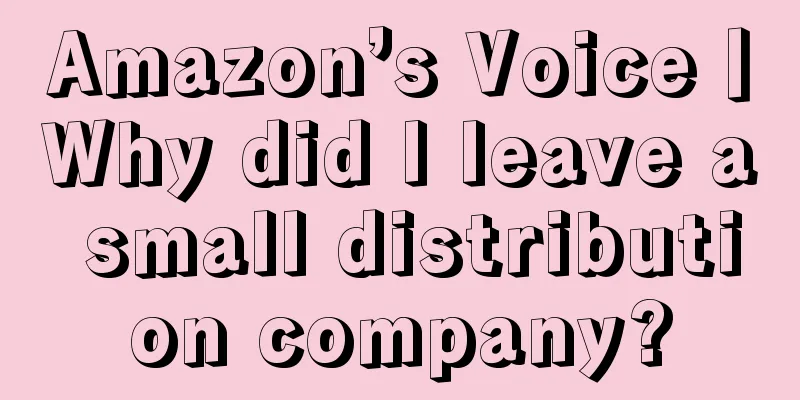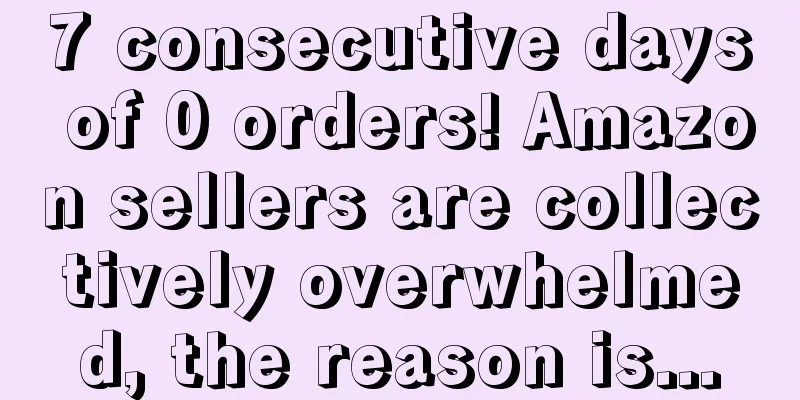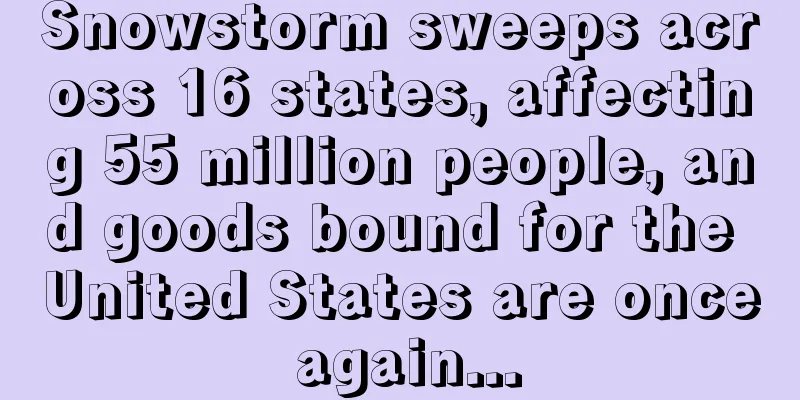Amazon’s Voice丨Why did I leave a small distribution company?

|
Preface of the Little Clone: This week's contribution comes from a seller in our official account who is struggling to transform his distribution operations. In order to protect the seller's information, the story will be adapted to a certain extent. Let's start with the story below. title Escaped from the big platform and joined a small company My previous story was relatively simple. It is actually the experience of an ordinary office worker in a large company. I can be said to be self-reliant and I chose to fight for and choose this job. In the eyes of us fresh graduates, big companies have their own halo. We go in and out of high-end office buildings. When people ask us what we do for a living, we can pretend to be humble and give our names, but in fact we are very proud inside. Now it seems that it was all because of our desire to save face. Compared with the above advantages, the disadvantages of this job are even more fatal. The salary is relatively low, and there is no chance of promotion because several senior employees are staring at it. In addition, some old hands are not good at anything and always take credit for themselves, so that we newcomers can do all the work but they take all the credit. After working for half a year, I felt very depressed and quit. A small episode, even in a large company, you have to run around to various departments to go through the procedures to quit, which is really super tiring. After I quit, I secretly planned that I would never look for a big company next time. Who would have thought that this idea would almost ruin me in the next few years. title Although the company is small, there are many pitfalls After leaving my last company, I submitted many resumes and had many interviews, and finally chose a small company that does Amazon. Because I worked part-time at Taobao for a while when I was in college, I felt that I would be more suitable for similar e-commerce operations. After I came to this company and started working on Amazon, I realized how naive I was. The boss of this company also started his business on Taobao, probably around 2012. When I first joined the company, I was attracted by his previous experience on Taobao, and hoped to learn more about e-commerce operations from him. The entire company has six people, not counting the boss, and the division of labor is not very clear. When I joined, the boss told me who to ask if I had any operational questions, who to contact for shipping orders, etc. But later I found out that these seniors also run stores, and the above work is only done part-time. Later I found out that more than half of these people are relatives of the boss. Maybe small companies are like this. I didn't think much about it at the beginning. At the beginning, the boss personally took me to the store backend and taught me how to upload and other tasks. Because of my previous experience on Taobao, I also had some simple photo editing skills, so the boss was quite satisfied with my performance at the beginning. I was in charge of a new British store. My boss helped me select the first few products. Later, after I got the hang of it, I could do everything from product selection to packing and shipping on my own. My boss also let me run the store independently. At this time, one pitfall after another came. When I placed an order and asked the finance department to pay, the finance department (the boss's relative) would comment on the price, saying, "How can this thing be so expensive?" and "You found such an expensive thing in that corner." If he could really give me a similar product that he knew was cheaper, I would have given in. But the finance department kept saying that a lot of products were expensive, but they just couldn't find a lower-priced product of the same quality. Either they were cheap but the product was inferior, or they couldn't find any and just laughed it off. In short, it is never a quick process to place orders or claim reimbursement in the finance department. It always takes a long time to go through so much trouble. Next is the warehouse keeper, who is also the boss's relative. Although she doesn't talk much, she is actually quite nice. Every time I talk to her about packing and shipping, she is very enthusiastic. The problem is that she always says she won't come, and every time she is not there, someone has to go to the warehouse to pack. I am the newest newcomer in this company, so naturally, this good job always falls on me. These two big pitfalls did not exist at all when my previous boss was working for me. Reimbursement was very quick and it was never my turn to do packing work in the warehouse. Although these two pitfalls are annoying, there are no other reasons that make me really want to leave. title Give up small companies and look for the next way out The two points mentioned above are actually trivial. What really made me decide to leave is the content of the work here. Different from the routine of Taobao at that time, after I came to this company, the job assigned to me by my boss was very simple, which was to find new products, photoshop, upload and handle some after-sales and cases. Most of the time was spent on promoting new products. At first I was confused, could Amazon not optimize and just upload the product to place an order? Later my boss told me that this is how Amazon works, and I felt relieved to continue my daily work. Although there were indeed some orders, they were rather sporadic. The boss wanted to find some products with sustained orders or traffic to send to FBA, but the performance of these products was not very good, and in the end he only sent the inventory for two or three. The strange thing is that the products with FBA should sell better, but the reality is just the opposite. Those products had a small surge when the inventory just arrived, and then returned to the normal traffic level. I wanted to ask my boss to fake orders and get some reviews, but he was often not in the company. I went to the finance department to talk about this matter, and it took a long time to hear her complain about the fees and delivery of products. As a result, the fake orders and reviews could not keep up, and the traffic did not improve. I also wanted to launch these products, but after struggling for a long time, I was very tired. At this time, I also learned that what I am doing now is called the distribution model. In fact, Amazon has an operation route for its main products. I have always felt that products, services, optimization, etc. are the core of e-commerce sellers. I really can't learn anything from the distribution method. I can only do repetitive work every day. I told my boss about this situation, but he had no intention of changing his distribution practices, so I ended up leaving Amazon. title The road to transformation into a high-quality product is long and arduous After I had some basic knowledge, I was accepted by another Amazon company. During the interview, I repeatedly confirmed the company's operating strategy and decided to join after confirming that it was a boutique route. This company is bigger than my previous employer, with about 30 people and different departments. After I came here, a senior operator took me to work. It was then that I realized that the keywords and titles when uploading are very particular, and some operators may even take a whole day to select them; after uploading, you can't just leave it alone and wait for orders to come in. You need to optimize it bit by bit according to traffic, product ranking and keyword search results. My previous experience was of little use except for getting familiar with the backend. I was learning how to run an Amazon store from scratch. Although I had to remember a lot of things every day, and sometimes I couldn’t fully absorb them even after reading them several times in a notebook, I felt that this was what real Amazon operations were all about. Now I am still trying hard to make up for the time lost due to product distribution. I hope my experience can help you. Conclusion of the Little Clone: As an important method for early Amazon sellers, the first wave of Amazon sellers made a lot of money. However, the Amazon environment is no longer what it used to be. The current Amazon is no longer suitable for the current Amazon, and the road for sellers who sell products through distribution will only get worse. Seeking ways to transform into a boutique route has now become a way out for sellers who sell products through distribution. The biggest difference between mass merchandising and boutique products lies in the methods and techniques used. I have compiled a few boutique route operation techniques for your reference. Please scan the QR code below to get them from me. PS. If you want to join the seller discussion group, you can also private message me to let me add you to the group |
<<: A bug appeared in Amazon backend! Sellers cannot unblock their stores
>>: Amazon romance is anything but boring
Recommend
Interpretation of Amazon's restricted products policy and a complete guide to appealing violations!
0 1 What is the restricted products policy? To en...
Big news! Amazon is mass-producing face masks! Prices to be announced later!
0 1 Walmart surpasses Amazon in the world's t...
The number of Walmart's third-party sellers has exceeded 100,000!
<span data-shimo-docs="[[20,"获悉,据Marketpla...
Fakes and fake orders are terrible! Can Amazon's new team enforce the law across borders? !
The last time Amazon sellers surrounded the Amazo...
What is JP Accounting Firm? JP Accounting Firm Review
Shenzhen Jane's Business Consulting Co., Ltd. ...
What is Seller Knight? Seller Knight Review
Shenzhen Kaiyu Technology Co., Ltd. (Seller Knight...
What is Amazon Category Review Invoice? Amazon Category Review Invoice Review
Amazon category review invoices (copies of invoice...
What is DIN? DIN Review
DIN is Germany's competent authority for stand...
The seller of pirated Bing Dwen Dwen has been sentenced! Amazon is investigating and these products may be removed from the shelves!
▶ Video account attention cross-border navigation ...
Pneumonia mortality rate exceeds 4.96%! Italy is under nationwide lockdown, cross-border sellers are in urgent need
Italy's new epidemic control is upgraded again...
Worried about UPS strike affecting transportation: 1 million packages are transferred to FedEx for transportation every day!
It is learned that according to consulting firm Sh...
Amazon Operation Practice: How to appeal if your account is frozen and how to write an action plan?
Amazon account freezing is the main reason that a...
Amazon's peak season is the peak period for infringements. Here are seven tips to help you avoid the minefield
As the year-end peak season approaches, what are s...
What is Foodies Feed? Foodies Feed Review
Foodies Feed is a free food-themed photo gallery. ...
What is Q&A (Customer Questions & Answers)? Q&A (Customer Questions & Answers) Review
Q&A, also known as Customer Questions & An...









